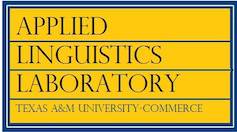¿Para qué ironizamos? Reflexiones de adolescentes de 12 y 15 años sobre las funciones de la ironía verbal
DOI:
https://doi.org/10.21283/2376905X.13.224Keywords:
LATER LANGUAGE DEVELOPMENT, VERBAL IRONY, METALANGUAGE, FUNCTIONS OF IRONY, THEORY OF MINDAbstract
To establish the reasons behind a speaker’s choice to use an ironic expression over a literal one, it is necessary to evaluate the speaker’s mind and his/her intention to employ irony in a specific communicative context. Taking this into account, the purpose of this study is to analyse the way in which adolescents ages 12 and 15 reflect on the functions of verbal irony in two types of ironic expressions: ironic thanking and ironic offering. Thirty-two subjects were faced with different communicative situations ending with an ironic remark and were asked about the functions they attributed to each remark and on what sort of knowledge they based their responses. Results show age-based differences in the amount and quality of the reflections presented by the participants.
Published
How to Cite
License
Copyright (c) 2021 Karina Hess Zimmerman

This work is licensed under a Creative Commons Attribution 4.0 International License.


